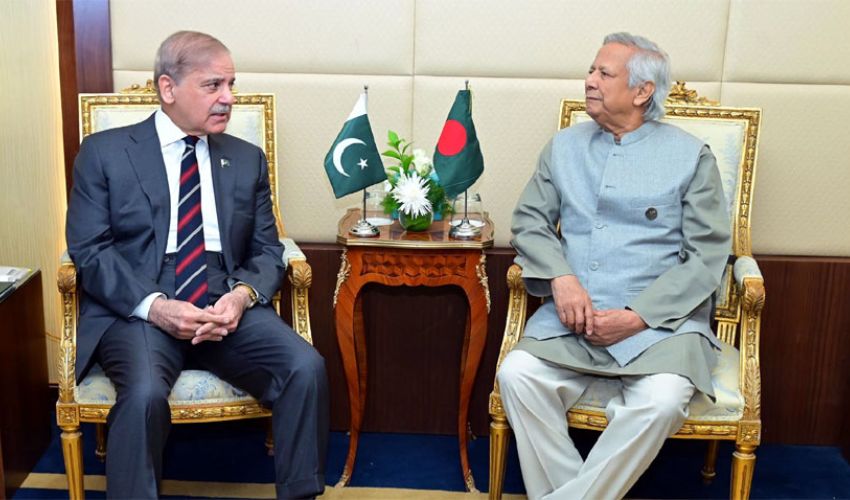Pakistan's rapid population growth is hindering development and the well-being of its citizens.
While people seek better family planning, access to services remains inadequate, especially for the poor. To address this, the Population Council piloted a family planning voucher model for BISP beneficiaries, now being upscaled in Punjab by the Punjab Population Innovation Fund (PPIF).
To explore further expansion through social protection agencies, the Population Council Pakistan convened a high-level roundtable on "Scaling Up Family Planning Vouchers in Pakistan."
The event brought together government officials and development partners to discuss solutions for improving access to family planning (FP) services, particularly for underserved communities.
Senator Rubina Khalid, Chairperson of BISP, was the chief guest, and Dr. Azra Fazal Pechuho was the Guest of Honor.
Other speakers included Ms. JahanAra Watto, Vice Chairperson, Punjab Social Protection Authority; Mr. Liaqat Ali, Advisor to the Chief Minister of Khyber Pakhtunkhwa on Population Welfare; Dr. Ijaz Nabi, Member of the Prime Minister’s Economic Advisory Council; and Dr. Luay Shabaneh, Country Representative, UNFPA.
Participants emphasised the importance of involving social protection authorities in family planning (FP) service delivery, as outlined in the national population action plan endorsed by the Council of Common Interest (CCI), to address the high unmet need for FP among disadvantaged communities.
Senator Rubina Khalid stated, “Through our Kafaalat and Nashonuma programs, we are dedicated to improving the well-being of women and children.
Our National Socioeconomic Registry enables us to extend vital support to the most vulnerable segments of society.”
She stressed the importance of FP service provision, particularly in remote and marginalized communities.
Dr Azra Fazal Pechuho highlighted that “Voucher programs allow us to reach women who face barriers in accessing FP services, ensuring they can make informed choices about their reproductive health.”
She emphasised integrating FP services into programs like Mamta and Aghosh and advocated for in-kind services over conditional cash transfers.
Dr Zeba Sathar, Country Director, Population Council Pakistan, emphasised, “Despite years of commitments, progress on FP remains insufficient.
With nearly six million unplanned pregnancies annually and 3.8 million women resorting to induced abortions, urgent, scalable interventions are needed.”
She cited the success of the Rahim Yar Khan (RYK) voucher pilot as an effective model for directing government resources to underserved populations.
Jo Moir, Development Director, UK Foreign, Commonwealth & Development Office (FCDO), noted, “Since 2017, through the DAFPAK Program, we have reached over 10.8 million women across all provinces.
However, overcoming cultural and societal barriers remains a key challenge.”
Ms Moir reaffirmed the UK’s commitment to supporting scalable and impactful interventions like family planning vouchers to meet the reproductive health needs of Pakistani women.
Liaqat Ali Khan emphasised that while Khyber Pakhtunkhwa is on track to achieve its family planning (FP) objectives, sustained progress requires stronger federal and provincial collaboration.
He advocated for incentive-based approaches rather than coercive measures to promote FP.
The event also featured presentations on successful FP voucher programs. Ms Iram Kamran, Director Programs, Population Council, shared insights from the RYK pilot, which utilized the Karen Zindagi Asaan mobile app for digital voucher management, significantly increasing FP service uptake.
Different social protection models from various provinces were also discussed.
Dr. Ijaz Nabi highlighted, “The success of the voucher program, backed by BISP’s support, demonstrates its effectiveness, and it is imperative that we scale up this initiative for greater impact.”
The roundtable concluded with a consensus on the need for collaboration, evidence-based policymaking, and scaling up proven FP voucher models. The Population Council reaffirmed its commitment to supporting government efforts through data-driven interventions to address reproductive health challenges.


























